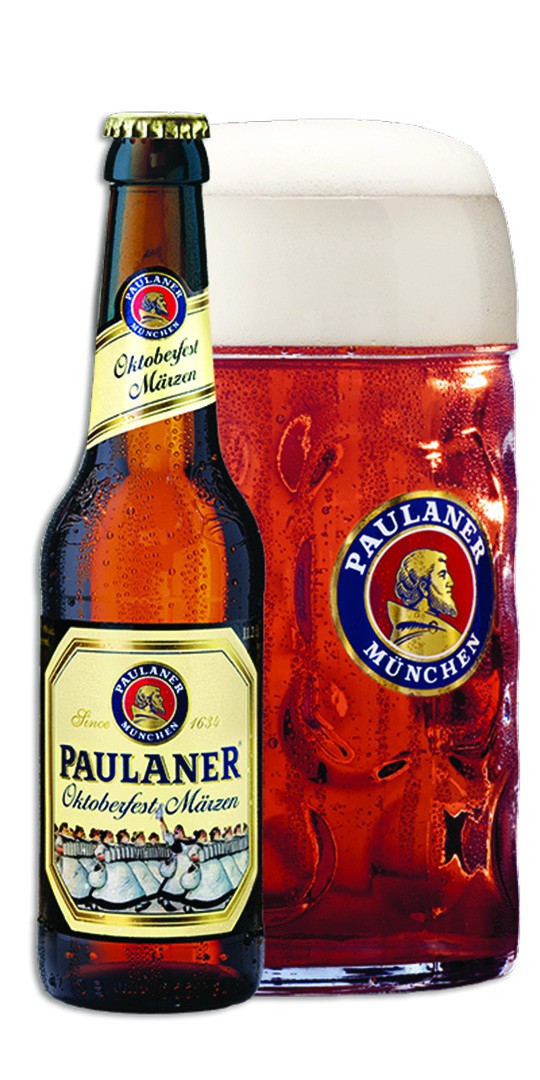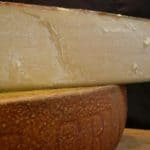
Germany’s hearty Märzen might be the Swiss Army knife of fall drinking.
“It’s the odd beer that’s right in almost any occasion,” says Sierra Nevada product manager and beer ambassador Bill Manley. (The brewery has locations in Chico, Calif., and Asheville, N.C.) “It can be hot out, it can be cold out, it can be (paired) with food, it can be (enjoyed) without food. It can go in so many different situations.”
Smooth-drinking Märzen is medium-bodied and moderate in alcohol—it’s easy to down more than one. The rich lager ranging in color from copper to gold has layered malt sweetness offset by balanced bitterness. “It’s got a flavor that’s familiar and complex at the same time,” Manley says. Märzens never generate buzzy headlines, instead content to withstand the test of time. “It doesn’t have to be over-the-top to be completely packed with flavor and complexity,” he says.
Märzen—also known as Oktoberfest, more on that later—originated pre-refrigeration, when brewing season ran strictly from late fall through early spring. (Hot weather brought a heightened risk of unwanted microbes.) To prevent spoilage, Bavarians stopped brewing around March. They stored beers in icy Alpine caves until autumn, ensuring they’d have plenty to drink. The beers emerged crisp, pure, and refreshing, a revelation that laid the framework for Märzen—German for “March.”
Originally the beers were served during annual harvest festivities, but in September 1810, Crown Prince Ludwig I of Bavaria was married and the entire country celebrated his nuptials (with plenty of Märzen, naturally). This was the first Oktoberfest. The fete became a yearly tradition—and the beer became synonymous with the event.
“Märzens just feel right as the leaves change color,” says Dick Leinenkugel, president of Wisconsin-based Jacob Leinenkugel Brewing Company.
The lagers remain stalwarts in Germany, headlined by classics such as Ayinger’s biscuity, malt-forward Oktober Fest-Märzen and Munich-made Hacker-Pschorr Original Oktoberfest Amber Märzen. In America, meanwhile, riffs on tradition abound. Brooklyn Brewery uses German grains and hops in its Oktoberfest, as does Chicago’s Revolution Brewing. Each year, Sierra Nevada collaborates with a rotating German brewery on a Märzen, a move followed by Leinenkugel. To celebrate its 150th birthday, the brewery partnered with Germany’s Hofbräu München to create Leinenkugel’s Anniversary Lager.
“There is something [special] about drinking a beer shaped by those world-renowned German brewing traditions,” Leinenkugel says.
Pairing Tips
You won’t make a misstep matching Märzens to snappy bratwurst, but the lager also shines with cheese. “I would go with a nuttier white cheese, something like Gruyère,” Manley says. Try Roth Cheese Grand Cru Surchoix or Crown Finish Caves Wallabout—walnut notes in the latter harmonize with Märzen’s prominent malt character.
Leinenkugel prefers offerings from Sartori Cheese; snag Piave-inspired MontAmoré, noted for its crystalline sweetness. For a traditional approach choose German Limburger, such as Country Castle produced by Wisconsin’s Chalet Cheese Cooperative. The cheese’s tangy pungency is tamed by the beer’s caramel sweetness, carbonation sweeping away the stickiness.
Five to Try
Left Hand Brewing Oktoberfest Märzen Lager
Brewed in the spring and cold-conditioned several months, the Colorado brewery’s lager is biscuity and spicy in equal measures.
Brooklyn Brewery Oktoberfest
Bavarian heirloom Munich and pilsner malts plus German noble hops give this full-bodied lager a bready profile and a touch of bitterness.
Surly Brewing Co. SurlyFest
Canned for all-occasions consumption, the Minnesota brewery’s atypical Oktoberfest is brewed with three kinds of rye, which lend an engaging spiciness.
Paulaner Oktoberfest Märzen
This German quaffer drinks crisp and refreshing, with a lovely taste of toffee. It’s one of six official Munich lagers that may be served at the celebration.
Sierra Nevada / Brauhaus Faust-Miltenberger Oktoberfest
A collaborative Märzen made with Germany’s heirloom Steffi barley, which adds flavor to the easy-drinker.







